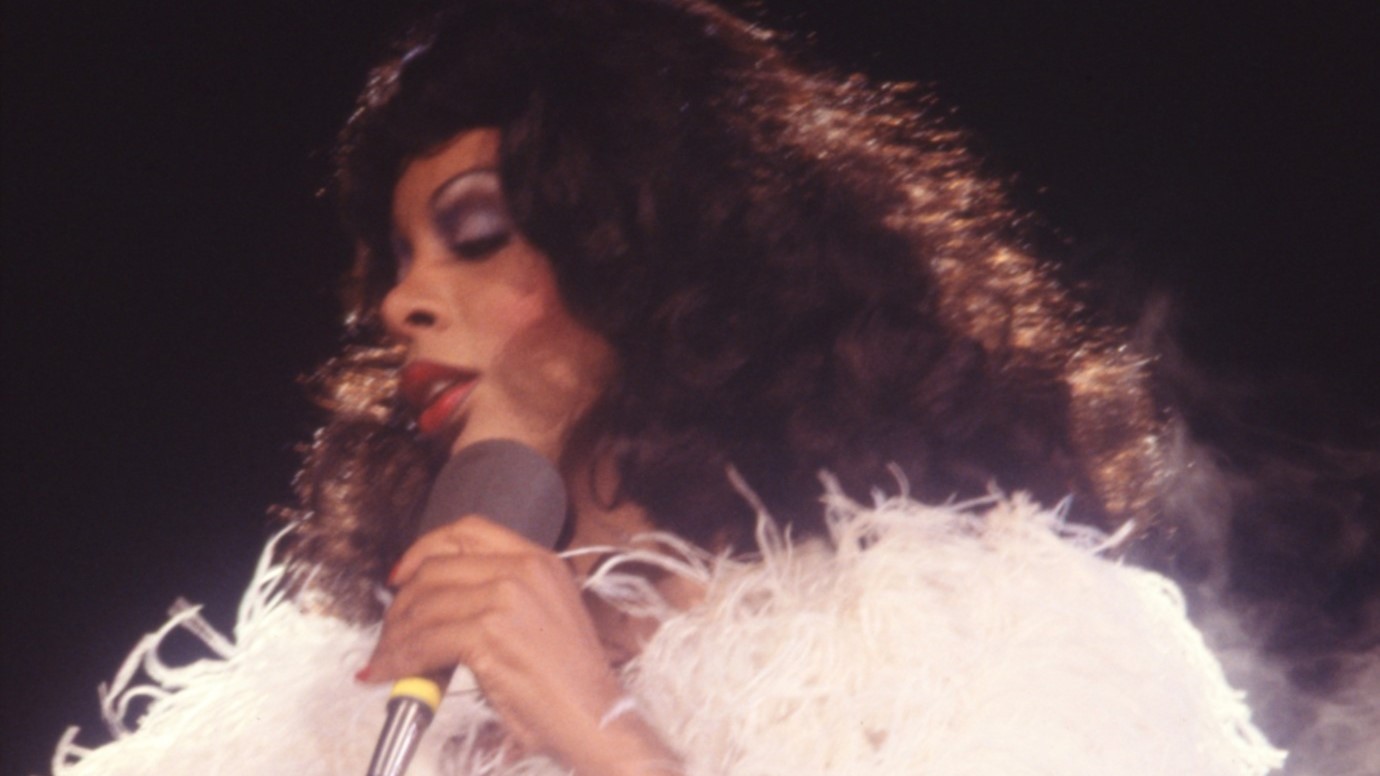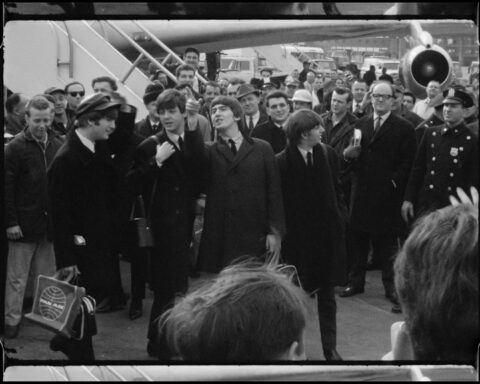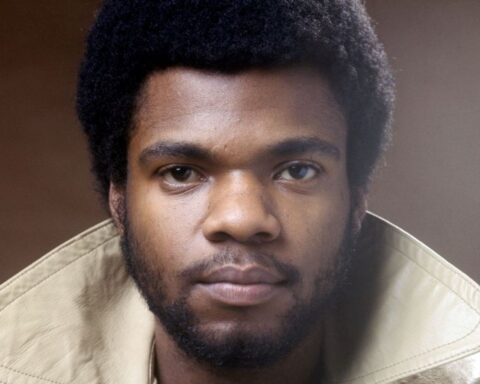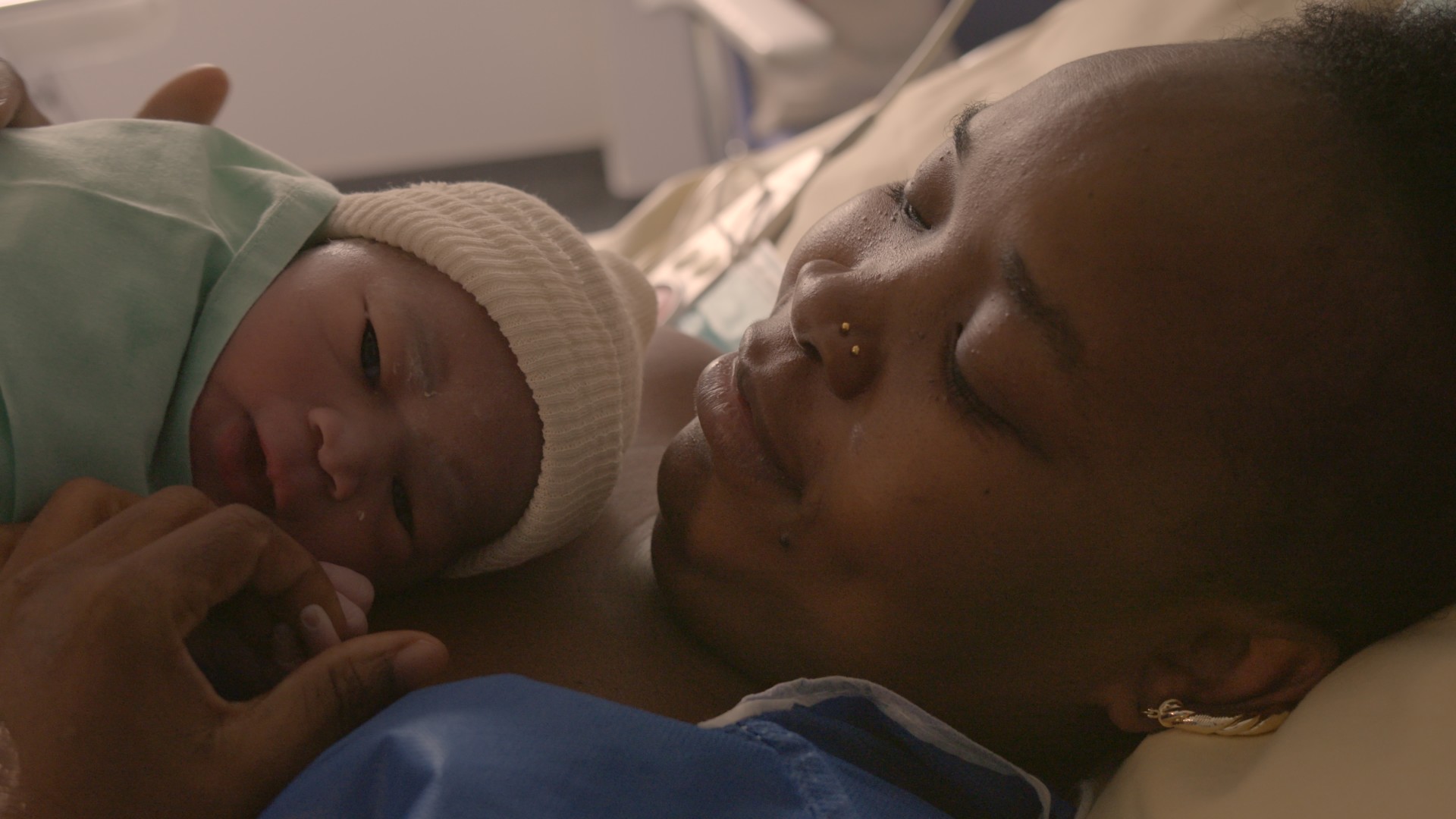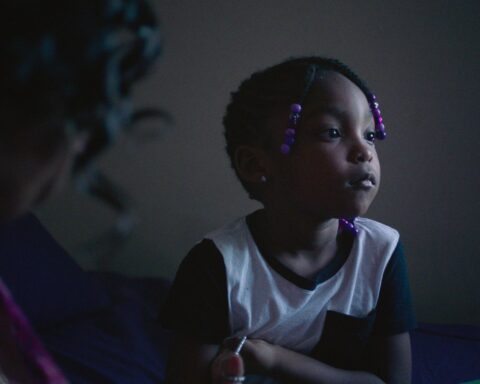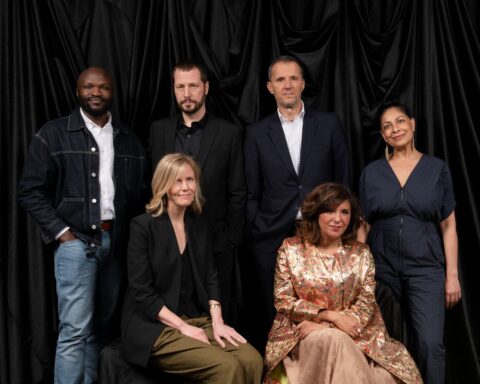Love to Love You, Donna Summer
(USA, 105 min.)
Dir. Roger Ross Williams, Brooklyn Sudano
Programme: Berlinale Special
It begins with an inhaled breath. Then, in a clear tone, a single note is sung. It’s the letter “I,” held like a beckoning call. First the guitar slides in, then a four-on-the-floor kick drum, and the main motif about loving to love continues to chug away in rhythm. By the 30-second mark, libidinous sounds enter: panting and cooing creates a seductive syncopation that runs the length of the record. There are rises and falls, string swells, and “liquidy” additions. By the end of the side-long, almost 17-minute track, it finishes its journey, the climax complete.
“Love to Love You Baby,” the song by Donna Summer co-written by Giorgio Moroder and producer Pete Bellotte, helped set the stage in Europe for the Disco revolution that had already been bubbling thanks to studios in Philadelphia and dance clubs, particularly underground gay clubs, all over the world. The song became a phenomenon. It spurred a half-decade of imitators and immediately catapulted the ex-pat Bostonian singer to global prominence.
If all Roger Ross Williams and Brooklyn Sudano’s documentary did was go behind the music to celebrate this remarkable recording, it may have been enough, but what sets their remarkable Love to Love You, Donna Summer apart is its unabashed attempts to get to the truth of Summer’s life, with all its contradictions intact, unafraid to tell the unvarnished truth of this remarkable yet complicated woman.
Williams is having a hell of a 2023, with his charming drama Cassandro premiering mere weeks ago at Sundance. Along with Sudano, daughter of the legendary singer, Love to Love You saw its premiere at Berlinale, which marked a homecoming of sorts for a subject who got her real professional bump in German studios. It’s easy to dismiss a doc like this one where the family is involved as merely an excuse for hagiographic celebration, but it’s to both filmmakers’ immense credit that the result is an unflinching, fascinating, and wonderfully nuanced portrait of Summer and her work.
We see the usual battery of archived clips, with contemporary voice-over interviews interspersed with clips from Summer’s own recollections. Films like Amy have shown how effective this can be when tackling such complicated subjects, and Love to Love You provides another welcome exemplar about how effective it can be.
Yet these various clips are rarely used in expected ways, and the intricate manner in which the film is assembled further benefits the tale. Behind the scenes moments from video shoots show a comical side of Summer, with goofy voices and mugging faces pulled between the more overtly seductive performances.
The tale of a gospel girl who rises to pop superstardom is hardly unique for the period, but what remains astonishing in this time of polished pop and auto-tuned lifelessness is just how remarkable a voice Summer truly had. There are many references to the roles she played, and it’s clear that in concert footage, her beginnings in musical theatre helped shape the way she’d inhabit each performance, from the more carnal hits of her early period to the appropriately strident attitude of later hits like “She Works Hard for the Money.”
This is more than the story of a singer, of course, and while the family tales are often indulgent in docs like this one, here they genuinely seem germane to the various phases of her career. Much of the footage was captured by Summer herself thanks to an early adoption of video recording, and her desire to be the director of her own story brings another level to both the adoption and subversion of her mythmaking.
Summer had many relationships, some of them volatile, and Sudano is shown on camera at times engaging with people from her mother’s past with occasionally startling candour. It’s rare to have people who behaved appallingly admit as such in projects like this one, but there’s no major player that’s refused to cooperate and attempt in their own way to set the record straight, no matter how discomfiting some of the revelations are.
It’s these aspects that go well beyond the tawdry or the tabloid and instead situate Love to Love You as a true work of biography, eliciting various aspects of Summer’s life from these myriad positions to paint a truly detailed portrait.
The most challenging aspect is making sense of Summer’s later homophobic remarks, here presented as fact and at least partially contextualized by those that claim to have understood her intent. Given how closely tied to that community much of her early success was, it remains a shocking mark on her legacy, and it’s a welcome inclusion unafraid to shy away from such contradictions in her character. There’s a bit left unpacked however in this most challenging of sequences, especially as Summer’s own response at a press conference is to accuse the reporters of fabrication rather than apologize or own up to her remarks, especially as they were expressed in other forms while on stage. While it may have unbalanced the role that this episode had in her life, it’s one aspect that may have had a bit more details about what actually transpired, perhaps even interviewing those who conducted the interview or digging up original recordings that would have shown what she said or didn’t say while providing context.
This is a small quibble in an otherwise exceptional film, a frustrating point because even though it’s dealt with sensitively and, for the most part, effectively, it’s a small moment where the truth isn’t exposed quite enough. Still, while it seems absurd to celebrate a film for being honest and truthful about its subject, it’s a rare enough feat when it comes to authorized music documentaries like Love to Love You, especially with family involvement, that’s it’s worthy of trumpeting.
There’s almost no contemporary pop music that doesn’t owe something to the DNA of songs like “I Feel Love,” and there’s direct correlation to the mega-divas of today following in Summer’s footsteps. From a strictly musical history perspective, the film does an admirable job of illustrating this fact without succumbing to false analogies or bending backwards to appease younger viewers. The talent is there and evident—the rest is up to those weaned on plastic pop to admire authenticity when they witness it.
There’s so much to love about Love to Love You, Donna Summer. It’s a wonderful portrait of this remarkable talent, a legendary singer too often sidelined as a mere disco phenomenon and rarely celebrated with quite the same fervour as her contemporaries. This film should, with justice, remind fans of how special she was, provide a road of healing for those who were so hurt by the remarks in her later career, and, perhaps more importantly, encourage newer generations to dive into her disparate discography.




